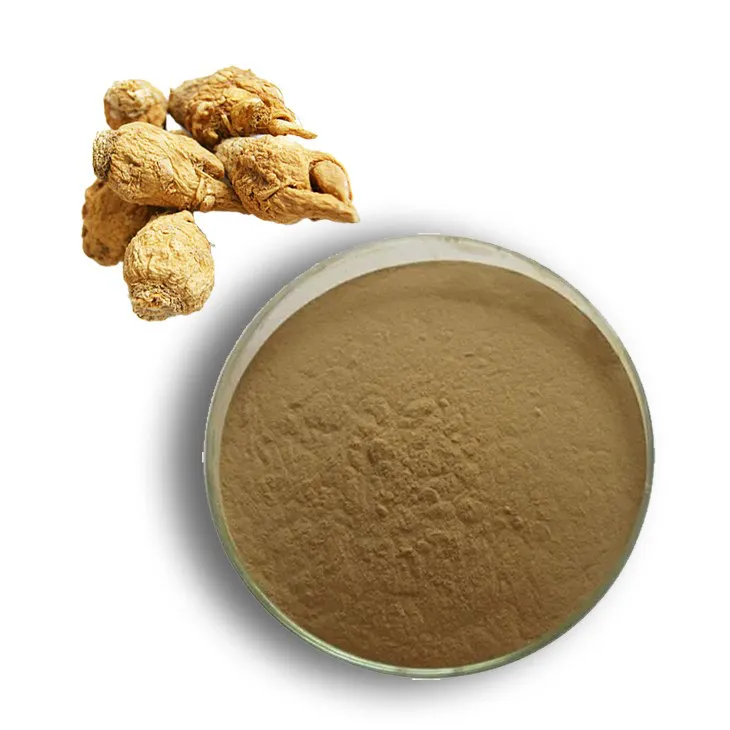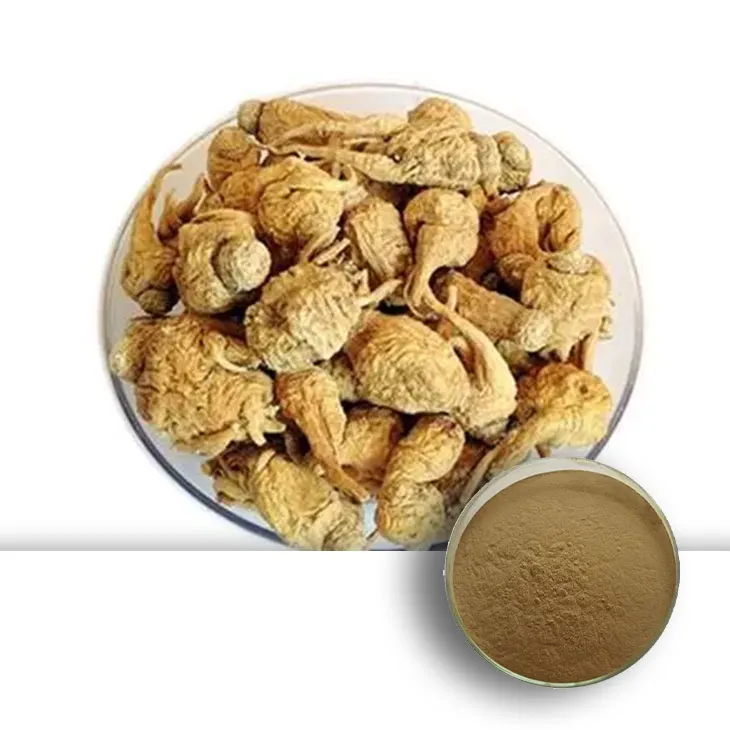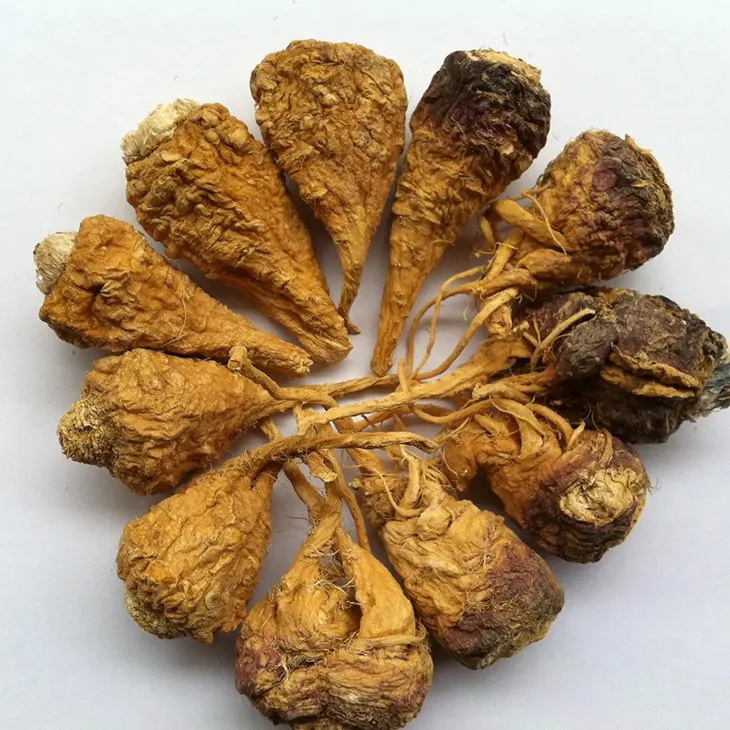- 0086-571-85302990
- sales@greenskybio.com
Is maca extract beneficial for diabetes? Are these all safe and suitable for diabetic patients?
2024-11-14

1. Introduction
Diabetes is a chronic metabolic disorder that has reached epidemic proportions worldwide. It is characterized by high blood sugar levels, either due to insufficient insulin production (Type 1 diabetes) or the body's ineffective use of insulin (Type 2 diabetes). Management of diabetes typically involves lifestyle modifications, including diet and exercise, as well as the use of medications in many cases. In recent years, there has been growing interest in natural products and their potential role in diabetes management. Maca Extract is one such product that has been the subject of research in relation to diabetes.

2. What is Maca Extract?
Maca is a plant native to the high Andes of Peru. It has been used for centuries in traditional medicine for its purported health - enhancing properties. Maca Extract is obtained from the maca root and contains a variety of bioactive compounds, including macamides, macaenes, and polysaccharides. These compounds are thought to be responsible for many of the potential health benefits associated with maca.

3. Maca Extract and Blood Sugar Regulation
3.1 In - vitro Studies
Some in - vitro studies have suggested that certain components of maca extract may have an impact on blood sugar regulation. For example, maca polysaccharides have been shown to stimulate insulin secretion in pancreatic beta - cells in laboratory experiments. Insulin is the hormone responsible for regulating blood sugar levels, and any substance that can enhance its secretion may potentially be beneficial for diabetes management. However, it is important to note that in - vitro studies do not always translate directly to in - vivo effects in humans.
3.2 Animal Studies
Animal studies have also provided some evidence regarding the potential role of maca extract in blood sugar control. In diabetic rats, administration of maca extract has been associated with a reduction in blood glucose levels. This effect may be due to multiple mechanisms, such as improved insulin sensitivity and reduced hepatic glucose production. For instance, some research has indicated that maca may influence the expression of genes involved in glucose metabolism in the liver. Nevertheless, while animal studies can provide valuable insights, there are differences between the physiology of animals and humans, and further research in humans is needed.
3.3 Human Studies
Limited human studies have been conducted on the effect of maca extract on blood sugar in diabetic patients. Some small - scale trials have reported a mild reduction in fasting blood glucose levels in diabetic individuals taking maca extract. However, these studies have been relatively short - term and have involved a small number of participants. Larger and more comprehensive human studies are required to confirm these initial findings and to determine the long - term effects of maca extract on blood sugar regulation in diabetes.

4. Potential Side Effects of Maca Extract
While maca extract is generally considered safe for most people when consumed in moderation, there are some potential side effects that need to be considered, especially in the context of diabetes. Some individuals may experience digestive issues such as stomach upset, diarrhea, or bloating after taking maca extract. These symptoms could potentially interfere with the management of diabetes, as they may affect the absorption of medications or the overall well - being of the patient.
In addition, there is a possibility that maca extract may interact with certain medications used in diabetes treatment. For example, if maca extract has an effect on blood sugar levels, it could potentially enhance or counteract the action of diabetes medications such as metformin or insulin. This could lead to hypoglycemia (low blood sugar) or hyperglycemia (high blood sugar), both of which are dangerous for diabetic patients.
5. Interaction with Existing Diabetes Medications
5.1 Insulin
If a diabetic patient is taking insulin and decides to start using maca extract, there is a risk of hypoglycemia. Insulin lowers blood sugar levels, and if maca extract also has a blood - sugar - lowering effect, the combination could cause blood sugar levels to drop too low. This could result in symptoms such as dizziness, weakness, sweating, and in severe cases, loss of consciousness. Diabetic patients using insulin should be closely monitored if they choose to add maca extract to their regimen, and they should consult their healthcare provider before doing so.
5.2 Oral Hypoglycemic Agents
Oral hypoglycemic agents, such as metformin, sulfonylureas, and DPP - 4 inhibitors, are commonly used in the treatment of Type 2 diabetes. Maca extract may interact with these medications in different ways. For example, if maca extract enhances the action of sulfonylureas, which stimulate insulin secretion, it could lead to excessive insulin release and subsequent hypoglycemia. On the other hand, if it counteracts the effect of metformin, which improves insulin sensitivity and reduces hepatic glucose production, it could lead to a worsening of blood sugar control.
6. Conclusion
In conclusion, while there is some evidence from in - vitro, animal, and limited human studies to suggest that maca extract may have potential benefits for blood sugar regulation in diabetes, more research is needed. The potential side effects and interactions with existing diabetes medications also raise concerns about its safety and suitability for diabetic patients. Diabetic patients should not start using maca extract without first consulting their healthcare provider. Healthcare providers need to be aware of the potential benefits and risks associated with maca extract in order to make informed decisions regarding its use in diabetes management.
FAQ:
Q1: What is maca extract?
Maca extract is a product derived from the maca plant, which is native to the high Andes of Peru. It has been used in traditional medicine for various purposes and is now being studied for potential health benefits.
Q2: How might maca extract affect blood sugar regulation in diabetic patients?
Some studies suggest that maca extract may have components that could influence blood sugar levels. It might enhance insulin sensitivity or affect certain metabolic pathways related to glucose metabolism. However, more research is needed to fully understand its mechanism of action on blood sugar regulation in diabetic patients.
Q3: Are there any known side effects of maca extract for diabetic patients?
While maca extract is generally considered safe for most people in moderate amounts, some individuals may experience side effects. These can include digestive issues like stomach upset, diarrhea, or bloating. In diabetic patients, it's also important to monitor for any unexpected changes in blood sugar levels as a potential side effect. But again, current evidence is limited, and more studies are required.
Q4: Can maca extract interact with diabetes medications?
There is a possibility of interaction between maca extract and diabetes medications. Since maca extract may have an impact on blood sugar levels, it could potentially enhance or interfere with the effectiveness of medications used to control diabetes. Diabetic patients should consult their healthcare provider before starting to take maca extract to avoid any adverse interactions.
Q5: Is there enough evidence to recommend maca extract for diabetes management?
Currently, the evidence regarding maca extract's benefits for diabetes management is not conclusive. While some preliminary studies show promising results, more extensive and well - designed research is needed. Therefore, it cannot be widely recommended as a treatment or supplement for diabetes at this time.
Related literature
- The Potential of Maca (Lepidium meyenii) in Diabetes Mellitus: A Review of the Current Evidence"
- "Maca Extract and Its Impact on Metabolic Health, with a Focus on Diabetes"
- ▶ Hesperidin
- ▶ citrus bioflavonoids
- ▶ plant extract
- ▶ lycopene
- ▶ Diosmin
- ▶ Grape seed extract
- ▶ Sea buckthorn Juice Powder
- ▶ Beetroot powder
- ▶ Hops Extract
- ▶ Artichoke Extract
- ▶ Reishi mushroom extract
- ▶ Astaxanthin
- ▶ Green Tea Extract
- ▶ Curcumin Extract
- ▶ Horse Chestnut Extract
- ▶ Other Problems
- ▶ Boswellia Serrata Extract
- ▶ Resveratrol Extract
- ▶ Marigold Extract
- ▶ Grape Leaf Extract
- ▶ blog3
- ▶ Aminolevulinic acid
- ▶ Cranberry Extract
- ▶ Red Yeast Rice
- ▶ Red Wine Extract
-
Ginseng Root Extract
2024-11-14
-
Garcinia Cambogia Extract
2024-11-14
-
Marigold Extract
2024-11-14
-
Boswellia Serrata Extract
2024-11-14
-
Propolis Extract Powder
2024-11-14
-
Black Rice Extract
2024-11-14
-
Cocoa Extract
2024-11-14
-
Beetroot juice Powder
2024-11-14
-
Hedyotis Diffusa Extract
2024-11-14
-
Europen Bilberry Extract
2024-11-14





















